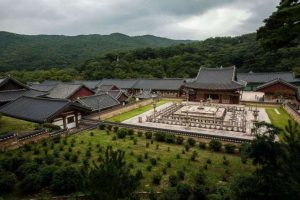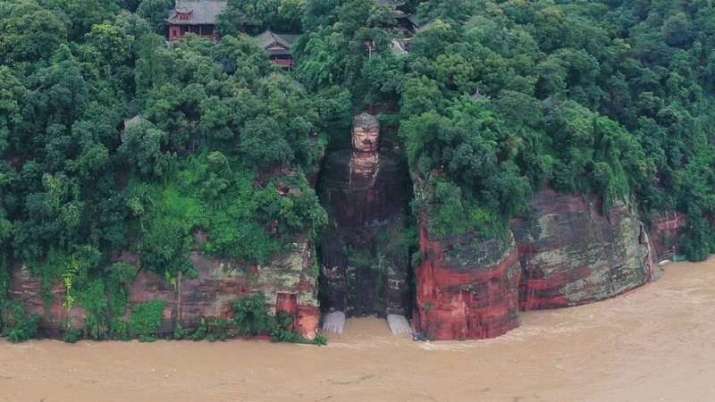
China is facing “once in a century” floods this week, exacerbated by Typhoon Higos, which passed by Hong Kong on 19 August. Among those threatened by the floodwaters are more than 100,000 residents who have been evacuated and the 1,200-year-old UNESCO World Heritage Site, the Leshan Giant Buddha. News images show the Buddha statue, which sits at the confluence of the Min and Dadu Rivers in central China’s Sichuan Province, with water reaching up to its feet.
Heavy rain over several days across central China has broken dikes and inundated towns across Sichuan, leading the authorities to issue a Level 1 emergency alert—the highest level on a four-level system. “More than half of the area of the town has been inundated,” said a local official in Sichuan’s Zizhong County. “The road leading to the town has been flooded and the town itself has become an isolated island.” (Nikkei Asian Review)
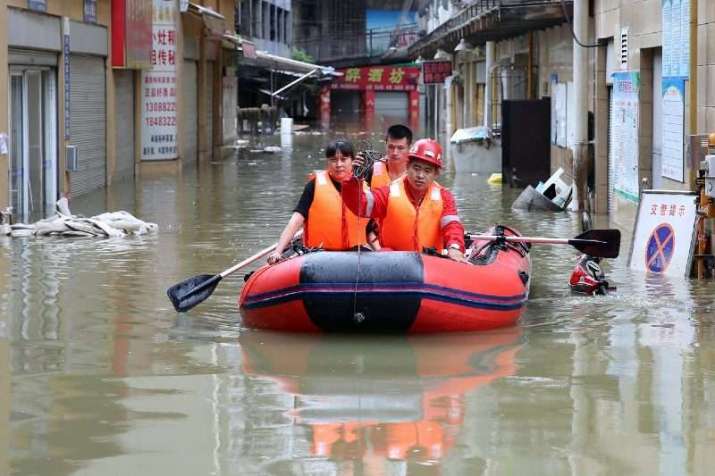
The rivers flow approximately 100 kilometers further where they merge with the Yangtze, China’s longest river. The Yangtze has already had four major floods this year. “This wave of floods is massive and has high peaks,” the Yangtze River Water Resources Commission of the Ministry of Water Resources said. “The flood control situation is quite severe.” (Bloomberg)
Meanwhile, Typhoon Higos—now a tropical storm—is pressing inland across southern China bringing heavy winds and rain. On Tuesday, President Xi Jinping visited Anhui province, which has also been affected by extreme rainfall and where sluice gates of the Wagnjiaba dam has been opened, flooding nearby farmland and forests in an attempt to reduce damage to communities downriver.
In Leshan, the 71-meter stone Leshan Giant Buddha can usually be observed from a large paved platform in front. The area is now under water, with staff members using sandbags to help protect the statue. This was the first time in at least 70 years that water had reached the statue’s feet.
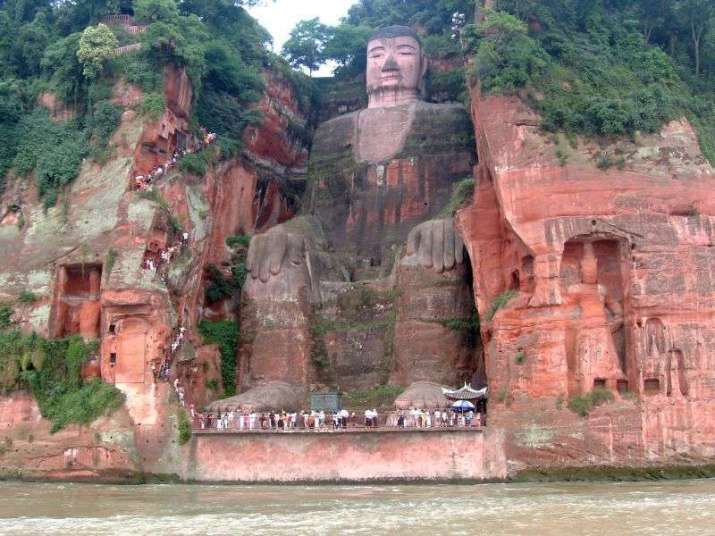
The statue was carved out of a rockface near the city of Chengdu over a period of 90 years, reaching completion in 803 CE. The purpose of the statue at the time was to protect boats as they passed through the turbulent waters in the area. During the carving of the Buddha, tonnes of stone was dumped into the river below, slowing the dangerous currents and effectively making the river safer. The statue, which depicts Maitreya Buddha in a seated posture, is the largest stone statue of Maitreya Buddha in the world. The facial characteristics are typical of Buddhist art from the Tang dynasty (618–907 CE).
The Leshan Giant Buddha is carved in Mount Emei, one of the traditional four sacred Buddhist mountains of China. According to tradition, Mount Emei is where Buddhism first reached China from India in the first century CE, during the Eastern Han dynasty (25–220 CE).
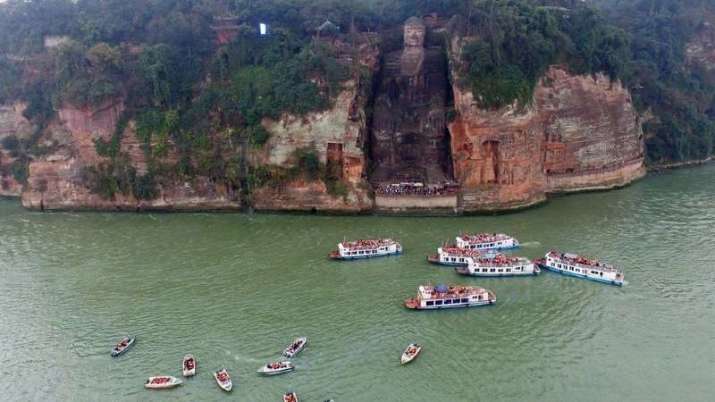
The statue has been a major tourist attraction in recent years, drawing more than two million visitors each year along with throngs of boat passengers who pass by the now-tranquil waters. Along with the viewing area in front of the Buddha, there are pathways around the statue and a stairway leading up to an additional viewing area at eye-level with the Buddha.
See more
China battles ‘once a century’ floods as Typhoon Higos bears down (Nikkei Asian Review)
China Floods Wash Feet of Buddha Statue for 1st Time in 70 Years (Bloomberg)
China record floods wet feet of Leshan Giant Buddha (BBC)












